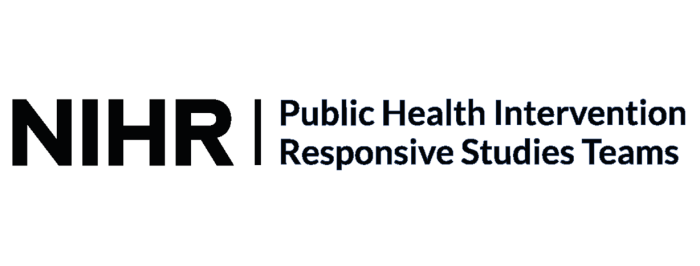Project aims
The aim of PHIRSTs is to co-produce responsive evaluations of public health interventions for local authorities across the UK
Our objectives are to:
- Undertake 10 projects over five years – funded to end of July 2025
- Incorporate rigour and robustness that is standard for NIHR funded research
- Meet the needs of public health and a broad range of stakeholders
- Co-produce with end users, providers, service users, carers, the public
- Mobilise knowledge produced from the work into policy and practice
Outputs
The evaluations being conducted will produce outputs of relevance for local and national government, service providers, the NHS, social care, local and national organisations across sectors of relevance to public health, service users and the general population.
- Project 1: The delivery of drug and alcohol services in Leeds:
The local authority, which commissions drug and alcohol services, the service providers and those who engage in service use will all benefit from this research, as the knowledge produced will provide an understanding of how drug and alcohol support services can be optimised, drawing on lessons learnt during the COVID-19 pandemic. Beyond the local service landscape, the wider national drug and alcohol service system will benefit from the translational knowledge produced. There will also be important learning for the effective remote delivery of services in sectors beyond drug and alcohol support.
- Project 2: The National Exercise Referral Scheme in Wales:
Public Health Wales and the Welsh Local Government Association (who jointly manage NERS), the Welsh Government, local authorities and other stakeholders involved in delivering NERS, and service users, will all benefit from this research. The knowledge produced will provide an understanding of how NERS might best be run in the future so that, as many people as possible can benefit, and positive outcomes are experienced equally by all. There are also likely to be findings of value to similar exercise referral schemes, as well as for health improvement and promotion initiatives that aim to engage and retain service users in these types of programmes.
- Project 3: The implementation of a Whole Systems Approach to diet and healthy weight in the East Region of Scotland:
The evaluation will provide useful evidence on the effectiveness of models for the delivery of a Whole Systems Approach to healthy weight and diet. This has value for Public Health Scotland, the East of Scotland Partnership Prevention and Remission of Type 2 Diabetes Programme, and councils in the East Region. The evaluation outcomes will also complement the national WSA pilot outcomes in Scotland and more broadly across the UK. The novelty of the evaluation will be in the comparison of applying the Leeds Beckett WSA Model (Public Health England, 2019) with other models of delivery of a WSA. Findings will also be used as critical insight for East Region’s Public Health Reform, for the Government’s Diet and Healthy Weight Delivery Plan and for partnership working across regions of the UK.






